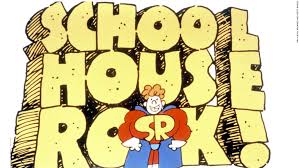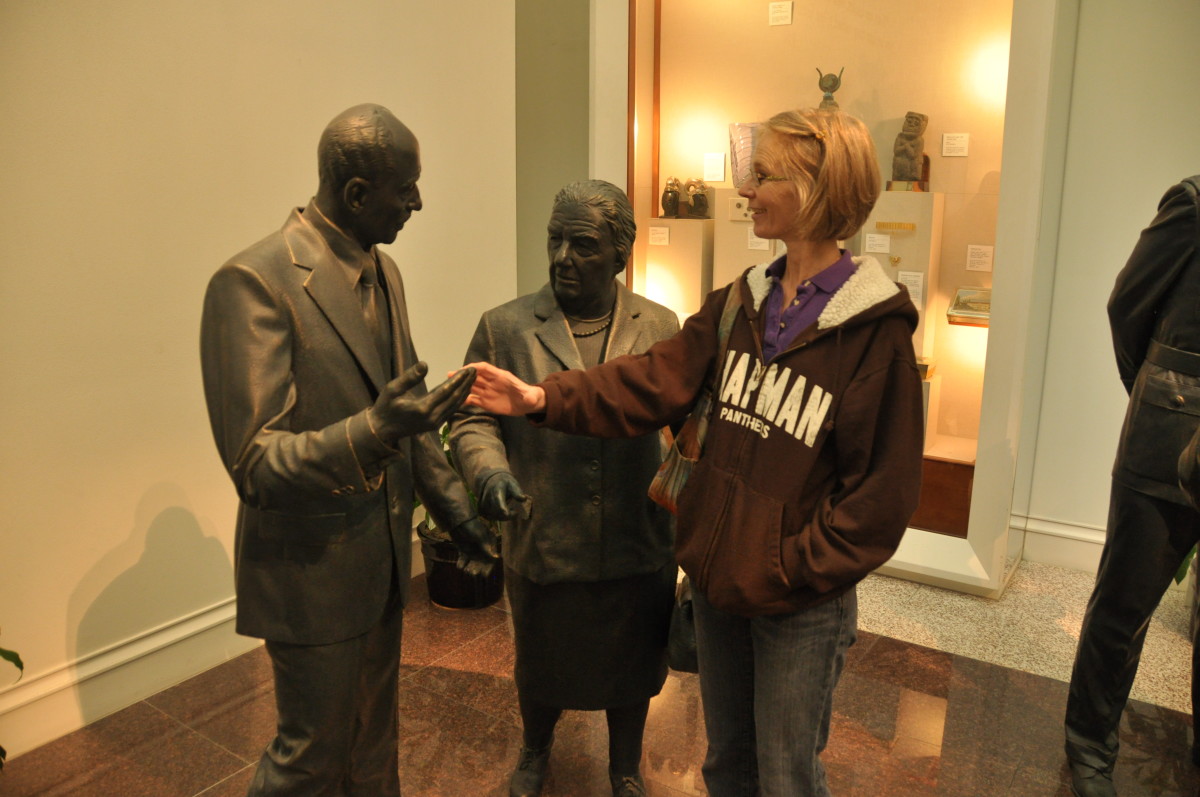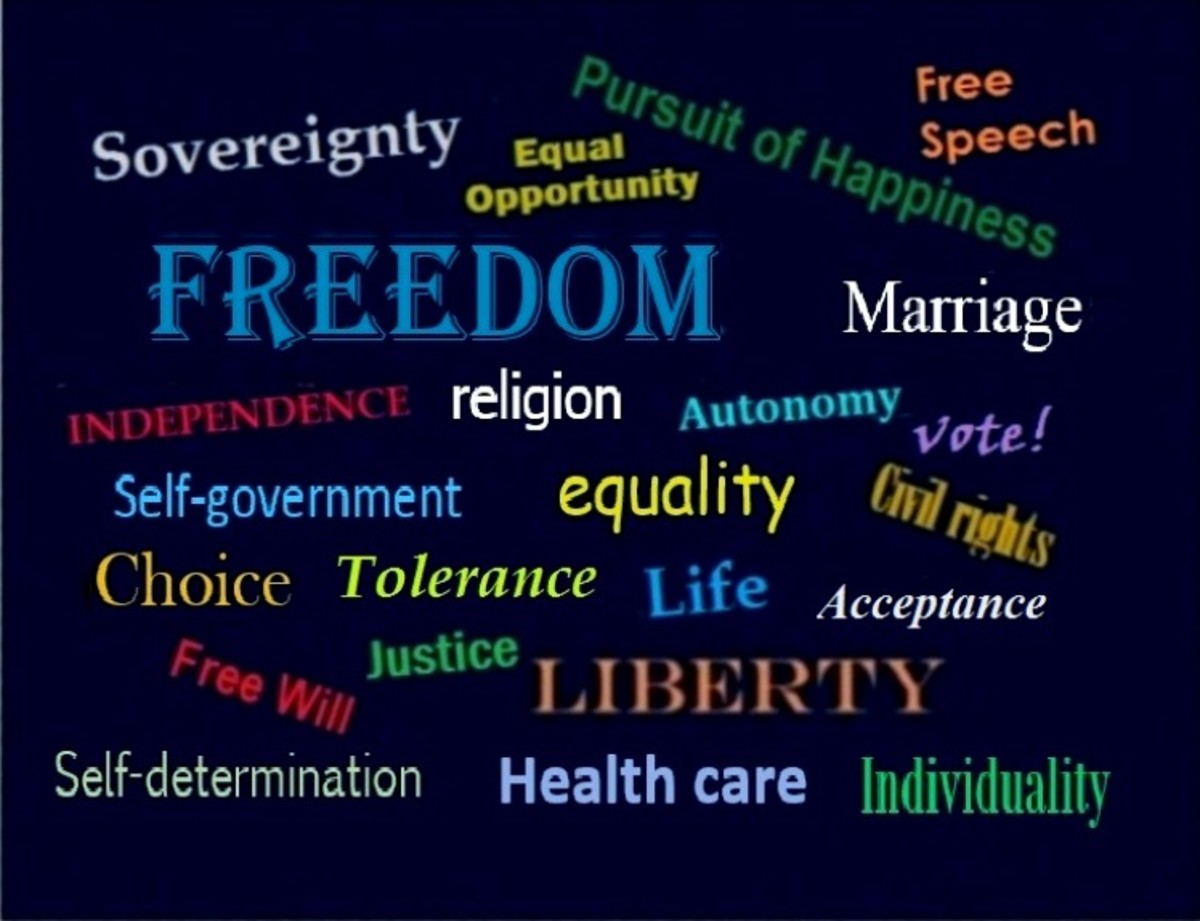Language and Politics: The American Nomenclature Problem

Words drift over time. They degrade and lose their meaning, due to inattention and neglect. Like your wristwatch that needs to be rewound everyday, so, too, is it useful to periodically recalibrate the terminology we use to discuss American politics, so that we can at least be sure---as we discuss things across political spectrums---that we are at least clear about what we are discussing.
I will start by describing myself---me, the person writing this---as a left-wing liberal past-looking reactionary-conservative.
Yes, that's right. I describe myself as a left-wing, liberal, past-looking, reactionary-conservative. I just want you to keep in mind the fact that the words "reactionary" and "conservative" are relative terms. That is to say, it depends on what you are "reacting" against and what it is that you want to "conserve."
Suggested Recalibrated Political Definitions
Left-wing: a point of view that sees that troubles of society's downtrodden as largely due to structural and institutional, not personal causes.
Right-Wing: a point of view that sees the troubles of society's downtrodden as largely due to personal, not structural and institutional.
Liberal: a point of view that advocates for the bold application of government resources to redistribute income and wealth. (stop). (Notice, I did not say in which direction income and wealth should be redistributed. That is because there are two kinds of liberalism, that advocate for the redistribution to go in two different directions.)
Left-Wing Liberalism: a point of view that advocates for the bold application of government resources to redistribute income and wealth from the top down, to help minorities and the poor, categories which often overlap and are almost mutually causal.
Right-Wing Liberalism: a point of view that advocates for the bold application of government resources to redistribute income and wealth from the bottom to the top, that is, upward to rich individuals and families, corporations. This is also sometimes called "military Keynesianism."
Having said all of that, I trust the following statement will not prove to be controversial. Ronald Reagan was a right-wing liberal, a military Keynesian, if you will. Was he a "conservative"? We shall see.
I called myself a left-wing, liberal, past-looking, reactionary-conservative. I consider myself a "conservative" person, by temperament, in the following way.
I don't like change; and make it reluctantly and only to the precise degree absolutely necessary.
I don't believe in fixing something, anything, that is not broken. I'm not a fan of "reinventing the wheel," as it were.
I don't like the idea of changing just for the hell of it.
I don't like something interfered with that works just fine. I believe that when you do this, you run the serious risk of outsmarting yourself.
Now then, when I describe myself as a "left-wing, liberal, past-looking, reactionary-conservative," what I mean by that is I want the New Deal back, at full strength, and then some.
The "then some" are two major policies pushed by Presidential candidate, Vermont Senator Bernie Sanders: universal, single-payer, full tax-supported, out-of-pocket free healthcare for every American; and universal free college education. He says that these policies would begin to put the United States in line with the most progressive and humane European nations.
The other "then some" I would like to see, this time around, is full inclusion of everybody in the "new" New Deal. As you know, what went wrong with FDR's program, ultimately, was that his administration did not spend enough. You may know that, at the behest of Southern Democrats, agricultural workers were specifically excluded from these programs. It just so happens that most African-Americans were farm workers (60-70 %), and so, found themselves left out.
Anyway... moving on...
Suggested Recalibrated Definitions (continued)
Conservative: an attitude---somewhat stubborn---of adherence to well-working, established consensus and precedent; an point of view that requires the most compelling of justifications for deviating from it in any way. (Again, let's be mindful of the fact that "conservatism" can run in more than one direction.)
Left-Wing Conservatism: an attitude---somewhat stubborn---of adherence to well-working, established consensus and precedent, which sees the economic problems of the downtrodden as institutional and structural in nature, which requires institutional and structural responses to address---such as FDR's New Deal reform program.
Left-Wing Conservatism would mean sticking to the New Deal-Fair Deal-Great Society well-working, established consensus and precedent, which had prevailed from about the middle of the 1930s to the early 1980s.
Right-Wing Conservatism: an attitude---somewhat stubborn---of adherence to well-working, established consensus and precedent, which sees the economic problems of the downtrodden as personal in nature, not institutional.
As I said before, the term "conservative" is relative. It depends on what you want to be conservative about. A conservative does not want to reinvent the wheel.
As I indicated, from about the middle of the 1930s to about the early 1980s, the New Deal-Fair Deal-Great Society consensus was the wheel. Ronald Reagan came into the White House as part of a revolutionary movement that broke that wheel.
Therefore, Reagan was not advocating sticking with the status quo, staying with what worked, standing pat. The revolutionary movement that Reagan was a part of is sometimes referred to as neoliberalism.
Neoliberalism: "new liberalism." (see "Right-Wing Liberalism," because that is what it is). In relation to the breaking of the wheel of the previous New Deal-Fair Deal-Great Society consensus, liberalism was "reinvented," if you will into a program of the bold application of government resources for the redistribution of income and wealth upward.
This version of American liberalism is associated with so-called "trickle down" economics. If you give tax cuts to corporations and the wealthy, they will feel less burdened, and will therefore be willing and able to create "jobs." There is a corollary that says that lowering tax rates will actually increase revenues.
As I said before, this "neoliberalism," or "new liberalism," or "right-wing liberalism," also sometimes goes by the name of "military Keynesianism."
Reactionary: This is anyone who is hostile to the status quo. (We must be careful here, as well, because reaction-ism can run in more than one direction).
I---the person writing this--- think that we are still living in the era of economic neoliberalism. I don't like it; I'm hostile to this status quo. And for that reason you may call me an economic reactionary.
However, I happen to love the fact that we are becoming more diverse as a country, in many different dimension, both culturally and socially. We are becoming more multicultural, let's just say; and we are becoming ever more "tolerant" of "alternative lifestyles," that is to say, the LGBT community.
For this reason, then, I would be insulted if you called me a social or cultural reactionary.
I should make this point clear before we go any further: Not every Republican is or has been happy with what they see/saw as the excessive levels of (right-wing) "liberalism" they saw from the administrations of Ronald Reagan and George W. Bush.
You may also know that there is a political party, in the United States, that calls itself "The Conservative Party." Yes, they are the natural allies of the Republican party. But no, they are not necessarily in lockstep with the GOP. Where the Republicans lose them, is when the GOP drifts too far over into (right-wing liberal or neoliberal) territory.
The Conservative Party does not see excessive government spending---even if it is on the military---as inherently conservative.
Neoconservatism: "new conservatism." This attitude says that the United States has gone soft on foreign policy, and that we've got to get strong again, positively assertive about America's disciplinary role in the world.
As you can readily see, neoconservatism is inherently reactionary. It is hostile to the present "soft" times and wants to move forward by harkening back to a time when America was strong, say, back in Harry Truman's time. As you know, Harry Truman the Democrat, is a name invoked with admiration by both Democrats and Republicans, for his muscular foreign policy, especially his "containment" policy of Soviet Communism.
Ronald Reagan was not an economic "conservative," but an economic "revolutionary." Neither was he a foreign policy "conservative," in terms of sticking with the Nixonesque status quo.
Reagan was a foreign policy "neoconservative."
Reagan was an economic (domestic policy) "neoliberal."
Ronald Reagan's neoliberalism (economic military Keynesianism) funded his international neoconservatism.
Libertarianism:
A. an attitude that always values personal freedom and privacy over and above national security concerns, real or imagined.
B. The philosophy sees itself as "socially liberal and fiscally conservative."
Point A is straightforward enough; we know what it means. Let us focus, for a minute, on point B.
Now then, if Libertarianism is "socially liberal," it should mean that the position advocates for the "bold application of government resources to redistribute income and wealth" for the purpose of addressing social problems.
Since it is the downtrodden in a society who have the majority of "social" problems, of an economic nature, Libertarianism should behave like standard left-wing liberalism.
However, this inclination seems to be checked by libertarianism's adherence to "fiscal conservatism." We have a contradiction.
Actually, we don't have a contradiction.
What libertarians mean when they speak of "social liberalism" is actually legal rights. They believe that people should have their legal rights. They believe the LGBT community should have equal rights with the rest of society. They believe in black rights, women's rights, Indigenous rights, and so forth, the right to vote, and so on.
Their advocacy for these kinds of legal rights do not, in theory, call for money to fix. They only call for the proper mobilization of political will.
Libertarians really should call themselves Legal Left-Wing Liberals: They advocate for the bold application of government political resources to redistribute legal and political rights, from the top down, from the elite, most favored white Christian heterosexual male down to people like women, racial and religious minorities, the LGBT community, people who have too few rights.
On the economic side, libertarians should probably be called conservative neoliberals. They have accepted and embraced right-wing liberalism, and rather "conservatively," do not wish to see this status quo altered.
Thank you so much for reading!








